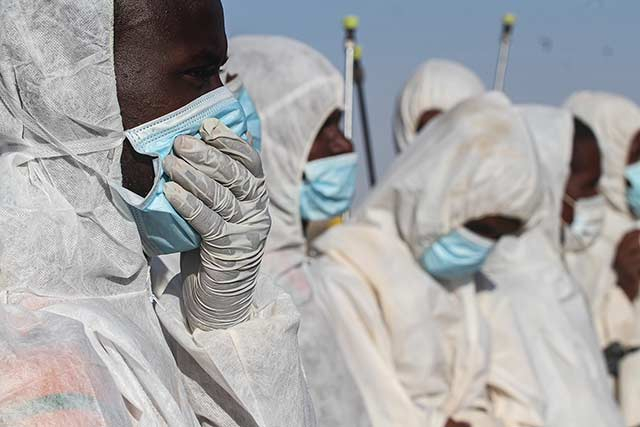‘We are not poor in knowledge (...) It's vital that we pool our intellectual resources’, Patrick Kadima writes in the South African City Press. Calling the coronacrisis a 'test of Africa's solidarity and resilience', a 'safe and healthy and integrated continent can only be realised if African countries (...) build public healthcare systems as a priority'.
Tanzania: 'Let's gather and pray'
If it comes to this, Tanzania's response to the corona crisis is not very promising. In an article on New Frame Jaclynn Ashly criticises President John Magufuli's call for citizens to gather in churches and pray. Initially hailed by international media as a 'strong man' and anti-corruption crusader, Magufuli's response has been 'strange and disheartening', lawyer Fatma Karume comments. She also nuances early praise for Magufuli. It was misguided because since '[he] was elected in 2015, he has been the target of scathing crisicisms for eroding freedoms of speech in the country, cracking down on civil society and journalists, and muffling democracry by banning political gatherings and routinely arresting opposition figures'. His present response to the crisis seems to be a very poisonous mix of religious fundamentalism and laissez-faire.
South Africa: Compassionate leadership
South Africa seems to do much better. In a report for the BBC correspondent Andrew Harding writes: ‘Heading the fight here against Covid-19, President Cyril Ramaphosa has emerged as a formidable leader—composed, compassionate, but seized by the urgency of the moment and wasting no time in imposing tough restrictive steps and galvanising crucial support from the private sector’.
'But is strong leadership enough to successfully fight a virus under the most extreme circumstances in South Africa's townships and squatter camps?' asks Mark Gevisser in an opinion piece in the New York Times.
Why has Africa been so little affected to date?
In an interesting and carefully formulated blog on the website of the Leiden Africa Studies Centre Mayke Kaag explores the data and statistics about corona in Africa. What do they tell us? Are Africans more resistant, as one resource claims? Are governments more experienced in dealing with emergencies like this? Is it simply a case of under-reporting? Kaag observes that a lack of global connectivity might work in the continent's favour. Flows of migrant workers from China or tourists from elsewhere are still limited. When it comes to connectivity, African countries have been in a lockdown for ages.
Read Notes on Corona in Africa 1 here.


